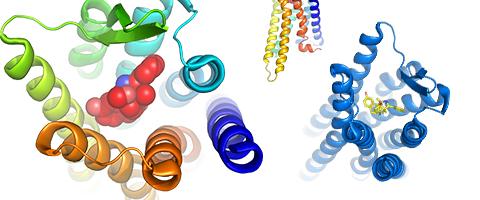Launched in 2019, the multidisciplinary Pain and Addiction Research Center (PARC) at UCSF is leading efforts to address two of the nation’s greatest public health challenges – the intertwined epidemics of chronic pain and addiction.
More than 25 million adults in the US suffer from chronic pain, over 2 million have an opioid use disorder (OUD), and more than 20 million have a substance use disorder (SUD). In most cases, an OUD begins with a prescription for an opioid analgesic or procurement of a diverted opioid medication, linking these two problems. While opioids play a critical role in the management of acute (e.g. postoperative) and cancer pain, as well as end of life care, unrestricted use of opioids to treat chronic noncancer pain has become a driver for dependence, diversion, opioid use disorder - addiction, overdose, and death. The costs to the US health care system for the management of acute and chronic pain, as well as addiction, total over $1.4 trillion dollars per year ($635 billion for chronic pain, $740 billion for addiction), a financial burden in excess of the combined costs of heart disease, cancer, and diabetes.
Given the collective clinical, research and educational expertise in pain and addiction and collaboration across the UCSF Schools of Medicine, Dentistry, Nursing and Pharmacy, and driven by a sense of urgency and our public mission, UCSF is uniquely positioned to find innovative solutions to these devastating problems. The Pain and Addiction Research Center (PARC) provides an organized translational research program focused on the development of safe and effective management interventions for chronic pain; the development of interventions that will decrease the negative consequences associated with opioids; and the development of effective interventions to reduce the individual and societal impact associated with opioid use disorders.
Hosted within the Department of Anesthesia and Perioperative Care, Division of Pain Medicine, and led by a core team and advisory panel with representatives from each of the four UCSF schools, some of the key areas of research that will be the foci of PARC preclinical, clinical, and translational research projects are listed below.
Mechanisms and Identification of Biomarker Signatures
• Cancer pain
• Headache
• Musculoskeletal pain
• Neuropathic pain
• Post-traumatic and post-surgical pain
• Transition from acute to chronic pain
• Addiction
• Opioid use disorders
• Disparities in pain assessment and management
Management
• Neuromodulation-based therapies
• Non-opioid analgesics
• Non-pharmacologic approaches
• Analgesic misuse and addiction
• Education
Drug Discovery
• Discovery of new chemotypes to modulate pain
• Optimization of these for potency and in vivo efficacy
• Testing in animal models
To learn more about the PARC or support its work, please visit painaddiction.ucsf.edu.
